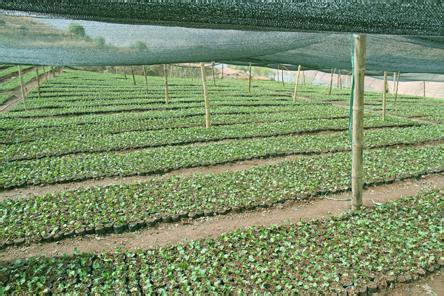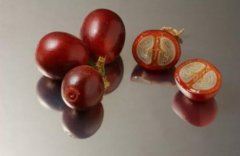El Salvador Coffee Manor Mercedes Manor Flavor and Taste characteristics planting situation Climate altitude

In addition, in 1986 the Government imposed an additional 15 per cent duty on coffee exports, i.e. 15 per cent on top of the existing 30 per cent tax. Taxes, combined with unfavourable exchange rates, severely reduced coffee exports and, with them, quality.
The government finally realized the huge role of coffee in the national economy, such as employment, foreign exchange and agricultural production, so in 1990, it privatized part of the coffee export industry, hoping to increase the yield of coffee in the export market.
Today, this coffee accounts for 40% of the country's exports. The best quality coffee is exported from January to March, and 35% of the extra hard beans are exported to Germany.
Salvadoran coffee
Flavor: balanced taste, excellent texture
In addition, in 1986 the Government imposed an additional 15 per cent duty on coffee exports, i.e. 15 per cent on top of the existing 30 per cent tax. Taxes, combined with unfavourable exchange rates, severely reduced coffee exports and, with them, quality.
The government finally realized the huge role of coffee in the national economy, such as employment, foreign exchange and agricultural production, so in 1990, it privatized part of the coffee export industry, hoping to increase the yield of coffee in the export market.
Today, this coffee accounts for 40% of the country's exports. The best quality coffee is exported from January to March, and 35% of the extra hard beans are exported to Germany.
Salvadoran Coffee-Salvadoran Coffee
Flavor: balanced taste, excellent texture
Recommended baking method: medium to deep, with multiple uses
Top quality beans: Salvador SHB
Taste characteristics: acid, bitter, sweet mild moderate.
El Salvador is tied with Mexico and Guatemala as the producer of Asa and Meldo, and is competing with other countries for the top one or two places in Central America. Highland origin, for the size of large coffee beans, fragrant taste mild. Like Guatemala and Costa Rica, coffee in El Salvador is graded according to altitude, with the higher the altitude, the better the coffee, and divided into three grades: SHB (strictly high grown)= high, HEC (high grown central)= medium high, CS (central standard)= low; the best brand is Pipil, the Aztec-Mayan name for coffee, which has been approved by the Organic Certified lnstitute of America.
Salvadoran coffee
El Salvador is one of the small countries in Central America, where coffee is light, aromatic, pure, slightly acidic, and the flavor characteristics are excellent balance, which is a specialty of Central America. It has sour, bitter and sweet taste characteristics, and the best baking degree is moderate and deep.
Origin of Coffee
In the early 1990s, guerrilla warfare greatly disrupted the country's national economy, reducing coffee production from 3.5 million bags in the early 1970s to 2.5 million bags in 1990 - 1991. The eastern part of the country was most affected by guerrilla warfare, and many farmers and workers were forced to leave their estates. The shortage of funds has caused coffee production to plummet, from 1200 kilograms per hectare in the past to less than 900 kilograms per hectare today.
Important Notice :
前街咖啡 FrontStreet Coffee has moved to new addredd:
FrontStreet Coffee Address: 315,Donghua East Road,GuangZhou
Tel:020 38364473
- Prev

El Salvador Coffee Manor Mercedes Manor Flavor and Taste characteristics brief introduction of Grinding degree and baking degree
El Salvador boutique coffee is concentrated in the volcanic rock producing areas of Santa Ana in the west and Charantanan fruit in the northwest. In recent years, the top 10 cup tests are almost entirely from these two producing areas, with an altitude of about 9-1500 meters, mainly bourbon (68%). Followed by Pacas (29%), mixed-race Pakamara, Dulaai and Kaddura accounted for only 3%. The coffee harvest season has been held since November.
- Next

Panamanian Coffee Manor Jade Manor Fine Coffee Flavor, Taste, aroma description, brief introduction to Cup Measurement
Coffee beans at high altitude have the most complete taste, high mellowness and diversified flavor, such as chocolate, caramel, flower and so on. The entrance is warm and moist with moderate sour and bitterness. The Panamanian extremely highland growth bean is one of the most outstanding varieties. The BOQUETE region of Panama, located in the province of CHIRIQUI on the border with Costa Rica, is a famous rose of Panama.
Related
- Does Rose Summer choose Blue, Green or Red? Detailed explanation of Rose Summer Coffee plots and Classification in Panamanian Jade Manor
- What is the difference between the origin, producing area, processing plant, cooperative and manor of coffee beans?
- How fine does the espresso powder fit? how to grind the espresso?
- Sca coffee roasting degree color card coffee roasting degree 8 roasting color values what do you mean?
- The practice of lattes: how to make lattes at home
- Introduction to Indonesian Fine Coffee beans-- Java Coffee producing area of Indonesian Arabica Coffee
- How much will the flavor of light and medium roasted rose summer be expressed? What baking level is rose summer suitable for?
- Introduction to the characteristics of washing, sun-drying or wet-planing coffee commonly used in Mantenin, Indonesia
- Price characteristics of Arabica Coffee Bean Starbucks introduction to Manning Coffee Bean Taste producing area Variety Manor
- What is the authentic Yega flavor? What are the flavor characteristics of the really excellent Yejasuffi coffee beans?

